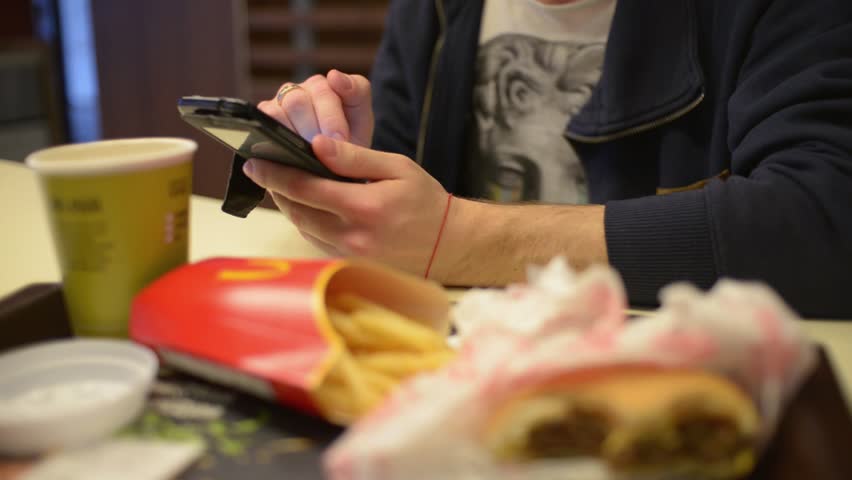)
Social media is to human connection what junk-food is to human nutrition.
Facebook like fast-food is convenient, it meets a desire, is superficially satisfying, it even offers some of what we need (connection or calories respectively), but by and large and in the long run, it is not all that good for us.
Look at the change in the fundamental unit of community — the family. Today, one in five children are raised in a home where the other biological parent is absent.
Some still see the nuclear family, mum dad and 2.5 kids, as the ideal. But the ideal community unit had already gone the way of REAL hamburgers and real food.
Prior to the nuclear ideal, the extended family lived together, providing a community that supported and sustained them all.
Even now, grandparents have time for kids that parents do not. But now the grandparents have their place and we have ours. We live our lives apart: each child in their own room, each parent may even have their own house. And the grandparents? Live elsewhere.
| even though it's not good for me! |
Mmm? I may be lovin’ it, but I am pretty sure it’s not good for me.
What is good for me? I’m not sure, but it seems more like when I live in a community, a village, surrounded by say 10–20 people whom I know and trust.
Facebook with 500 or more so-called “friends” cannot replace my village, the people I know and trust.
And trust should not be confused with like. All humans are flawed, and there may be things that I might not like about someone, but that does not mean I am not able to trust them. Trust means I know the person, I know her or his limitations, I know of the contexts in which I might trust them to do the right thing and which ones where they might not.
They are not even necessarily dear friends, I don’t even necessarily like them so much of the time. Rather, I know them, and can trust — as in rely — on them to behave in certain ways.
Uncle Frederic might be an odd-bird, a bit of a bore at social gatherings, still a bachelor and frankly, we can understand why. Nonetheless, he is good with the kids, and they love him, and at a pinch, he could be called in to take Cathy out for a talk and a soda as she wrestles with life as an adolescent.
Just as fast food has supplanted simple, real food cooked at home from scratch, so Facebook and the other online copy-cats have supplanted community created at heart in the home.
A “like” from some 500 or more of my Facebook “friends” may give me a little frisson of pleasure, but a more limited gesture of friendship is difficult to imagine. Pressing a thumbs-up symbol, and then moving on to the next image in a continuously changing stream of images and words is hardly much display of friendship let alone commitment.
The problem is that convenience is king in so many things. We love quick-fixes. And fast food and Facebook offer just that.
Unfortunately, what we want is not necessarily what we need. And what we need — healthy food, exercise, and making time and space for our village, some of whom are frankly a pain in the butt — is bloody hard work.
So we don’t bother. We choose the junk option, the quick-fix, the one that sets off the pleasure centre in our brain. We hear a ping on our phone and leap to look: someone likes me!
That’s not good, that is sad.
To feed your body, you need to eat well. To feed your soul, you need to connect well.
What a post! it is so true, so touching and with so many sentiments in it. Today Facebook though has connected us but it has made us apart also. We judge people by they liking the post, it is not good. I wish for the old time. Good awakening post.
ReplyDeleteGood post! In current scenario Facebook is a global village where we can connect or contact our love ones within seconds.
ReplyDeleteThe problem is that convenience is king in so many things.
ReplyDelete